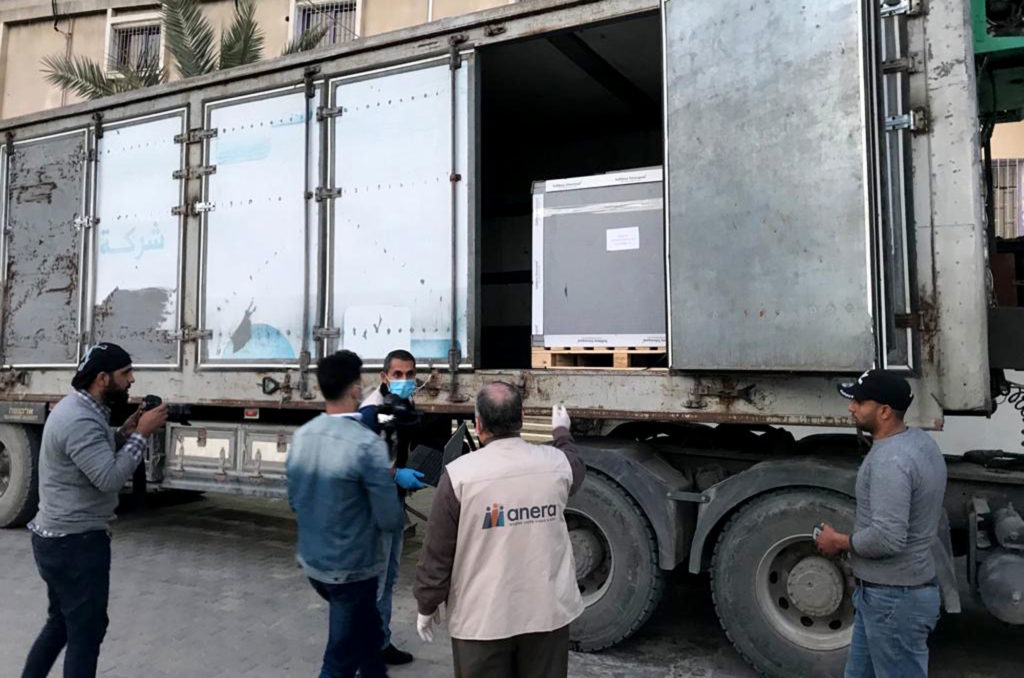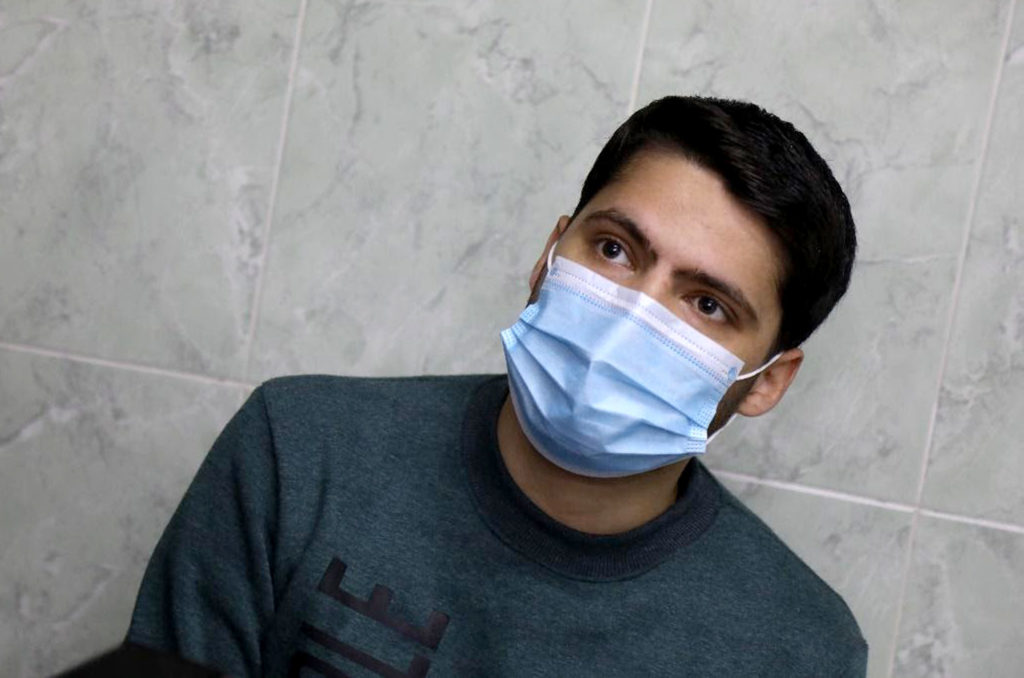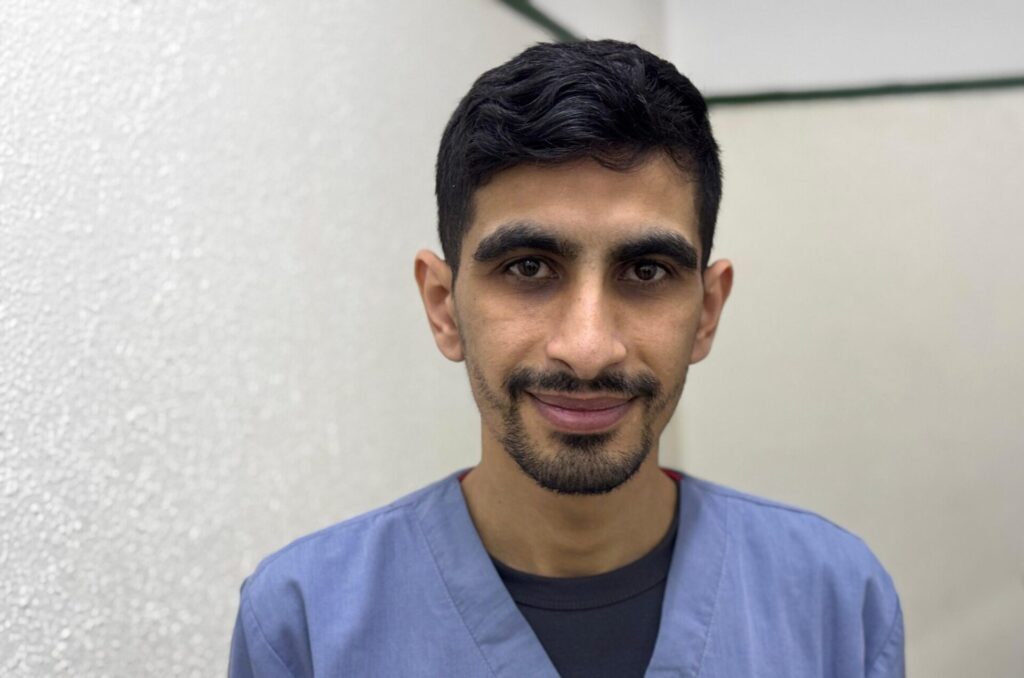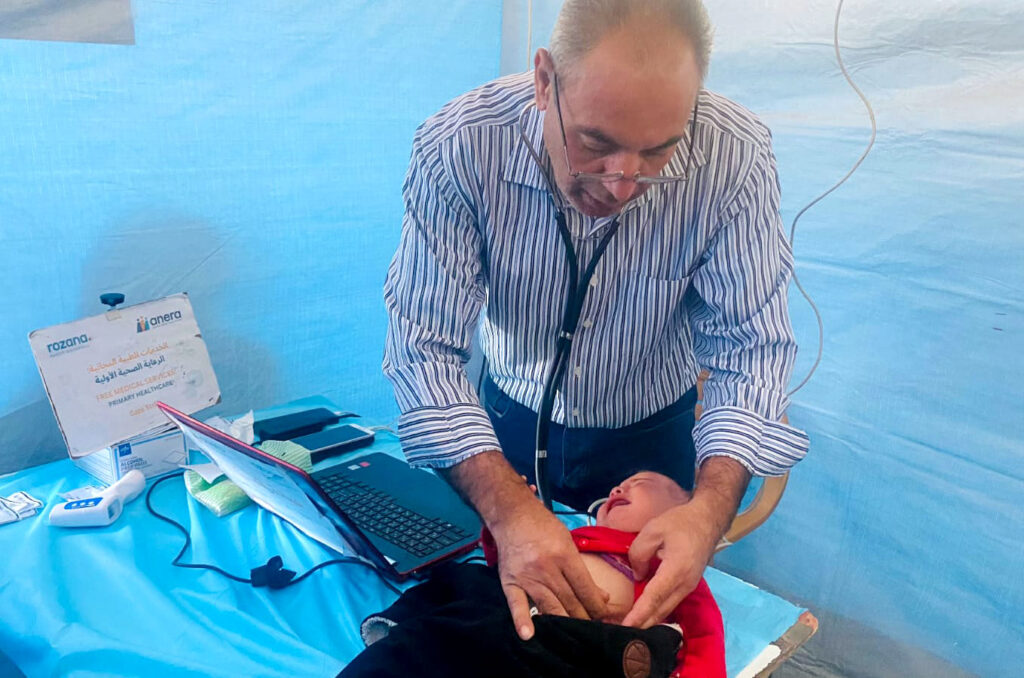Jul, 2021
Medical aid contains the medicine adalimumab for patients in Gaza. Meet two of the patients whose lives have been impacted.
Anas | A life on hold
Haja Amena is at the hospital with her grandson Anas. Her voice trembles as she describes the misery that the 15-year-old has been enduring.
“He is a high school achiever,” she says. “He is always ranked as one of the best students.”
Anas loves school. Arabic is his favorite subject. But one day he realized that the words on the blackboard had become too blurry for him to read.
He was diagnosed with eye inflammation and received treatment, including high doses of cortisone steroids, at the Ministry of Health’s ophthalmology hospital.
Anas felt some improvement after the procedure. But it didn’t last long. Soon, signs of severe inflammation started to appear again, and his vision got even worse than it was before. And new symptoms emerged, like pain when swallowing and aches in his joints.
Anas longed to enjoy a normal life again.


“He told us that his life had no value.”
“He couldn’t get out of bed,” his grandmother says. “His feet were stiff. He refused to go outside or meet people. He stayed home crying. He told us that his life had no value.”
His physicians referred him to Shifa Hospital, where he was eventually diagnosed with Bahcet’s disease, a rare disorder characterized by blood vessel inflammation.
Doctors prescribed Anas cyclosporine and adalimumab. Fortunately, there were a few adalimumab injections left from a previous Anera shipment.
Anas’s eye infection improved somewhat. However, as soon as Shifa Hospital began running out of the drug, Anas’ situation deteriorated. The deficiency of adalimumab has cost Anas a complete loss of vision in his left eye.
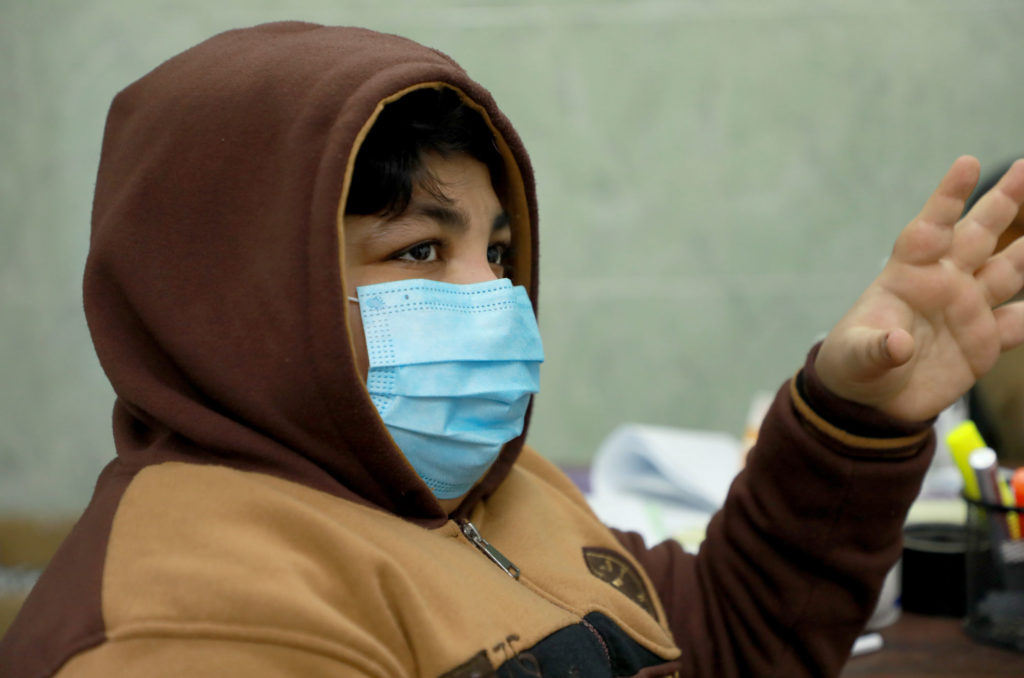

Doctors say he needs adalimumab at least for two years consecutively to save his other eye and also expressed hopes that he may restore vision in his left eye.
According to the medical staff at Shifa Hospital, some 255 patients need treatment with adalimumab in Gaza. These patients have a variety of illnesses, including Crohn’s disease (97 cases), Rheumatic arthritis, Ankylosing spondylitis (117 cases), and Bahcet’s disease Psoriasis (41 cases). Due to the inadequate supply of medication, the Ministry of Health prioritizes based on the severity of each case.
Shifa Hospital pharmacist Saja El Qirim says “The worst scenario for me is when I have to prioritize one critical case over another. They are all critical to me.”
“For the past years, we weren’t able to provide adalimumab consistently for patients in need. It hurts my heart that we’ve never gotten a chance to fully commit to any [adalimumab] patient for at least one solid year. Nobody can afford to purchase [the drug] – neither patient nor the Ministry of Health – because it is so very expensive,” El Qirim says.
Thanks to a generous medical aid donation from Direct Relief, not long after we spoke with El Qirim, Anera received 2,760 vials of adalimumab. The four pallets of medicine were sent in a cold chain air shipment.
At Shifa Hospital six weeks after we first met with Anas, his mother is emotional as she describes the improvement in his condition. “Before, he couldn’t see anything. Now, praise God, he is 50% better,” she says.
A few months ago, Anas couldn't see anything. His mother thought maybe he was nearsighted. Unfortunately, a visit to an ophthalmologist revealed that her son might lose his vision.
Anas had been taking injections of adalimumab for a month and a half at the time of this interview. “The doctor told us that the medicine has to be available for another two years to ensure a complete course of treatment,” his mother says. “Then they will reevaluate his case.”
Anas’ mother hopes that he will soon be well enough to go back to his school and return to his high-achieving self.
First, though, his vision needs to improve further. Sadly, Anas can’t engage in physical activities either, owing to the high levels of cortisone that leave him with pain in his bones.
“My son is still in tenth grade and he’s sitting at home. He hasn’t seen or known anything about life yet,” his tearful mother says.
As soon as the new shipment of adalimumab arrived into Gaza, Anas started taking it once every two weeks.
“Now, he can move without me helping him to stand,” his mother says. “Everybody including the doctors are impressed to see this quick improvement.”
She is thrilled at the improvement in his condition, although she remains anxious that, should supply of the medicine run out again, her son might deteriorate and develop irreversible blindness.
Solieman | Crohn’s cost him his job
Solieman was a teacher of chemistry in Gaza. He worked at a private school where his salary was modest but enough to sustain him and allow him to lead a dignified life — a rarity for young people in Gaza’s constricted economy.
He also lives with Crohn’s disease.
The 24-year-old says his illness began over a decade ago when he developed an internal abdominal abscess. He received treatment in Egypt, then returned to Gaza feeling optimistic as he continued his treatment at Shifa Hospital.
Unfortunately, his care was interrupted when the hospital’s stock of medicine fell to zero. He lost his appetite and developed unpleasant symptoms like diarrhea and vomiting.
Again, Solieman managed to get permission to go for treatment abroad, this time in Jerusalem, where he got some relief. But, since the start of the pandemic, movement restrictions have become tighter and his treatment was interrupted. Recently, he felt so ill, he had to spend 26 days in the hospital.
The shortage of adalimumab meant he couldn’t go about his daily routines and, sadly, the school laid him off during that time.
“I felt so bad. It made me lose my self-confidence,” said Solieman.
“The drug shortages have really damaged my physical and mental health. I can’t afford to buy the medicine. And doctors have tried alternatives but they really haven’t helped. Now that I have access to adalimumab again, I can live my life normally.”
